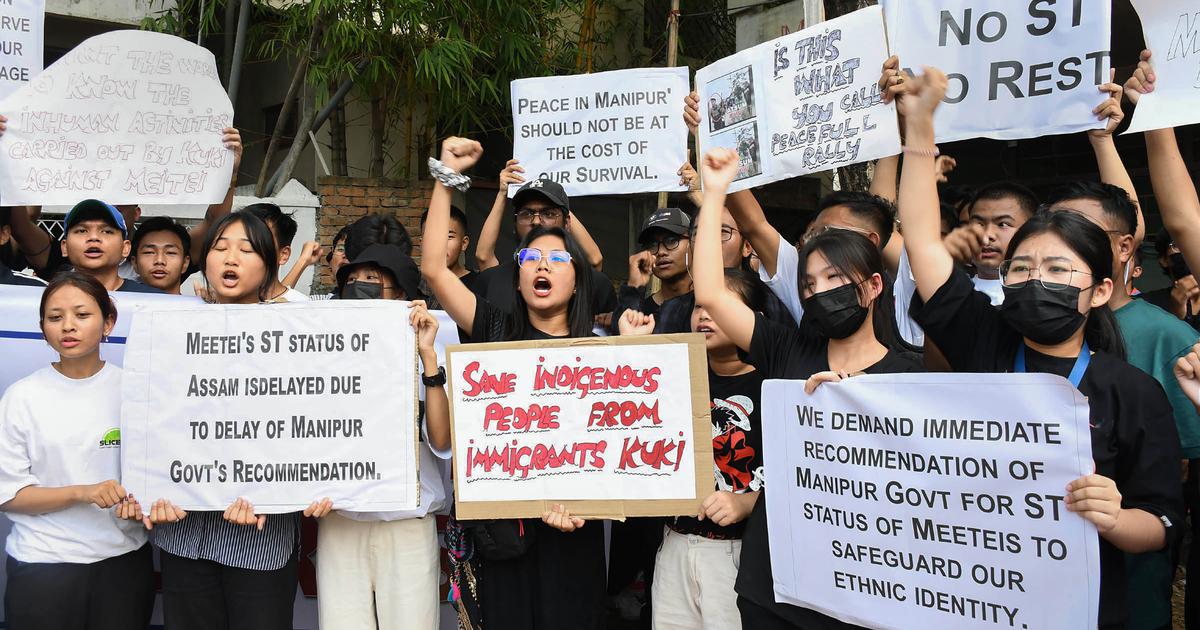
The All Naga Students’ Association, Manipur (ANSAM), in response to the growing momentum of the STDCM's campaign to enlist Meeteis/Meiteis in the Scheduled Tribe list, has vehemently opposed the move, citing several concerns and reasons.
In a memorandum submitted to the Governor of Manipur, Anusuiya Uikey, ANSAM articulated its stance against the inclusion of the dominant Meetei/Meitei community in the Scheduled Tribe list, emphasizing the potential adverse effects and implications of such a move. The association has highlighted several key points to substantiate its opposition:
Reversal of Social Strata: ANSAM argues that categorizing the Meetei/Meitei community as Scheduled Tribe would signify a reversal of social progress, moving from urban to rural, civilized to uncivilized, and forward to backward, which contradicts the aim of promoting and protecting weaker sections of society.
Suppression of Government Criteria: The association contends that the current criteria for determining Scheduled Tribe status in India do not align with the characteristics of the Meetei/Meitei community, which has evolved beyond traditional tribal traits and surpassed them in various aspects of development.
Debatable Homogeneity: ANSAM questions the homogeneity of the Meetei/Meitei community, citing centuries of ethnic mixing and demographic shifts that have occurred over time, making it difficult to classify the community as a homogeneous tribe.
Social Strata Classification: The complex social fabric of the Meetei/Meitei community, including various strata such as General, OBC, and SC, presents challenges in segregating and categorizing them as Scheduled Tribe.
Advanced Characteristics: ANSAM points out various indicators of advancement within the Meetei/Meitei community, including infrastructure development, cultural richness, educational achievements, and political representation, which are not typically associated with tribal communities.
Constitutional Framework: Unlike tribal areas in other states safeguarded by specific constitutional provisions, Manipur's tribals lack similar protection and are governed under Article 371(C), which has become ineffective due to non-implementation.
ANSAM urges fair play and prompt action to address the concerns raised, emphasizing the importance of maintaining social harmony and respecting the diverse ethnic communities in Manipur.

The Hills Journal
K. Salbung, Churachandpur
Manipur-795128